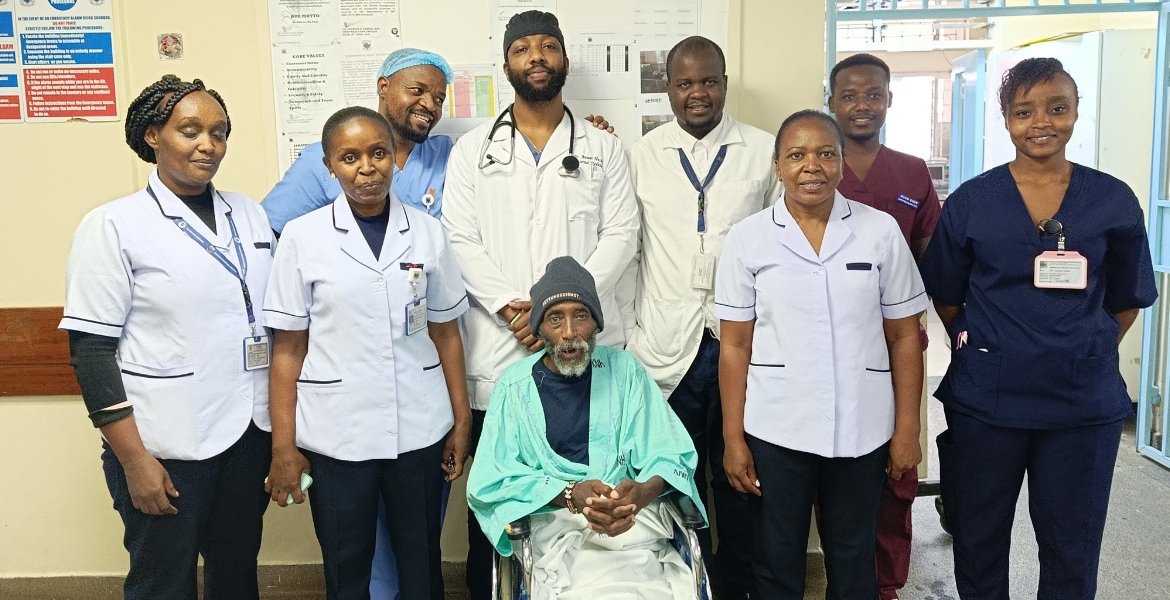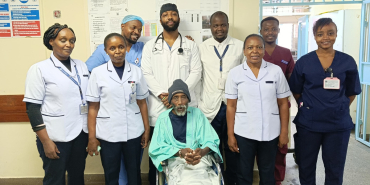After 20 Years Bedridden, Kiambu Man Walks Again Following KNH Treatment

After spending twenty years bedridden due to spinal tuberculosis, 52-year-old Ibrahim Mungai from Kikuyu, Kiambu County, has regained independence following intensive treatment and rehabilitation at Kenyatta National Hospital (KNH).
Mungai developed tuberculosis of the spine, or Pott’s disease, in 2004, leaving him unable to walk and confined to bed for two decades. The condition caused severe spinal damage, chronic infections and a steady decline in his physical health.
His recovery began in July 2025 when he was admitted to KNH in critical condition with advanced pressure sores, kidney failure and a serious urinary tract infection. Shortly after arrival, he slipped into a three-day coma but recovered after six rounds of dialysis.
On 4 August, he underwent a two-hour operation to treat a scrotal infection, followed by three months of intensive care. A multidisciplinary team, including renal specialists, physicians, physiotherapists, nurses, counsellors and nutritionists, worked to stabilise his condition and rebuild his strength.
Through continuous rehabilitation, Mungai regained the ability to sit, move independently in a wheelchair and, for the first time in over twenty years, stand unaided. Speaking after his recovery, Mungai said he felt renewed optimism and hoped to return to his cobbler business. KNH commended the outcome, describing it as part of its mission to restore dignity and improve the quality of life for patients recovering from severe illness.
Tuberculosis of the spine is a serious but uncommon form of tuberculosis caused by the same bacteria responsible for lung TB. The infection spreads to the vertebrae through the bloodstream or lymphatic system, leading to inflammation, abscesses and bone damage. Without timely treatment, it can cause spinal deformity, paralysis and loss of bladder or bowel control.
According to the Cleveland Clinic, early symptoms often include persistent back pain and muscle weakness, which may progress to severe disability.








Add new comment